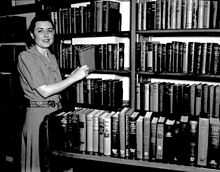Semiprofession

A semiprofession is an occupation that requires sophisticated knowledge and skills, but is not regarded as a true profession. Examples include social work, librarianship, and teaching. They often have less clear-cut barriers to entry than traditional professions like law and medicine, and their practitioners often lack the degree of control over their own work that has been traditionally associated with professionals such as doctors and lawyers.[1]
In addition, the semiprofessions tend to have been historically identified as "women's work," thus exacerbating prejudices against regarding them as "true" professions regardless of the amount of skill involved.[2]
AACTE list
One group especially tied to this term, the American Association of Colleges for Teacher Education (AACTE), published a list of twelve checkpoints they believe help define a semiprofession.[3]
- Lower in occupational status
- Shorter training periods
- Lack of societal acceptance that the nature of the service and/or the level of expertise justifies the autonomy that is granted to the professions
- A less specialized and less highly developed body of knowledge and skills
- Markedly less emphasis on theoretical and conceptual bases for practice
- A tendency for the individual to identify with the employment institution more and with the profession less
- More subject to administrative and supervisory surveillance and control
- Less autonomy in professional decision making, with accountability to superiors rather than to the profession
- Management by persons who have themselves been prepared and served in that semiprofession
- A preponderance of women
- Absence of the right of privileged communication between client and professional
- Little or no involvement in matters of life and death
Works cited
- Arfken, Deborah Elwell (1998). "Semiprofessions". In Linda Eisenmann. Historical Dictionary of Women's Education in the United States. pp. 358–359.
References
- ↑ Arfken 1998, p. 358.
- ↑ Arfken 1998, p. 359.
- ↑ Howsam, RB et al (1976). "Educating a Profession."